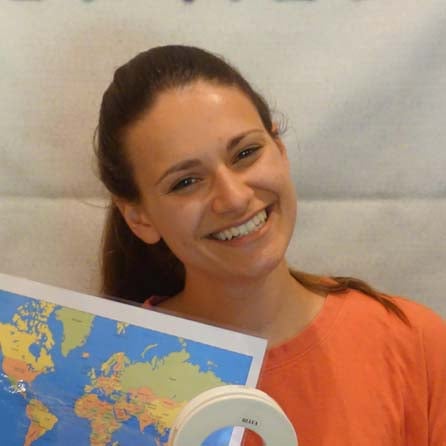Reverse Culture Shock: 5 Things That Surprised Me When I Returned Home
After traveling abroad to teach English online, International TEFL Academy (ITA) alumna Nicola Rae was surprised by five things she encountered in America. She shares her insights with us in this eye-opening blog post.
Written By: Nicola Rae | Updated: June 29, 2023
Written By: Nicola Rae
Updated: June 29, 2023

After months of traveling abroad, I was excited to get home and visit my family for a while. When my plane first touched down in America (the Miami airport, to be exact), I was surprised to feel, well, surprised. Things that used to be so normal to me now felt foreign, like I was walking into a new country all over again.
What is Reverse Culture Shock?
Reverse culture shock refers to the disorientation and emotional adjustment experienced by individuals returning to their home country after living abroad for an extended period. It involves readapting to familiar customs, norms, and daily life, often accompanied by feelings of alienation and nostalgia for the foreign culture.
Go further: Life After Teaching Abroad
In America, we have water fountains, everywhere. The very first thing I noticed when I landed in Miami was the sheer quantity of water fountains. Why would anyone ever need so many water fountains? There was another one very few feet, it seemed. I’m pretty sure I saw more water fountains on my walk from the plane to passport control than I did in my entire time abroad.
We drive everywhere in America. It actually took me quite a while to get comfortable driving again. Where my family lives in the suburbs, driving is pretty much a requirement. You aren’t making it to get groceries or even to mail a letter without driving. I was happy to be reunited with my car. She is a ‘99 Honda named Miss Scarlet who has been my faithful companion through thousands of miles of commutes and road trips and doesn’t even mind when I sing Hamilton at top volume. I totally missed her, but it was strange to have to drive everywhere.

We buy so many groceries. My first grocery run abroad made me look ridiculous because I didn’t realize that the rest of the world doesn’t buy groceries in bulk quantities the way Americans typically do. I was the queen of meal prepping, couponing, BOGO-ing, the whole shebang when I was in the States. I could turn a car full of groceries into huge crock pot dinners that would be carefully portioned out into tupperware for a weeks worth of lunches. That strategy, I learned, doesn’t work as well abroad. There I was in a quaint foreign market, buying enough food to feed an entire adolescent soccer team, then hauling it all home on foot like a pack mule. Probably in the rain. It was tough. So I adjusted. I bought just the few groceries I needed for the day and I began to enjoy my little walk to the store each day. Back in the States, I had to relearn how to shop like an American.
While we’re on food, fast food is everywhere and it’s open 24/7. I’ll admit it, the first time I drove through a Taco Bell at 2:00am after being abroad was a glorious experience. But after traveling through countries where most restaurants close at normal human hours, it was a bit strange to see how many options we have all the time.
Perhaps the most surprising thing about being back home was that I could understand all the conversations going on around me. After months of being in cities where the local language is not my own, I was used to tuning out background conversations. When I landed in the Miami airport, I could actually understand the conversations going on around me. The guy sitting next to me at the gate was chatting on his phone and I felt like such a snoop because I could hear and understand every word he was saying. The girls behind the counter at the coffee shop were talking and I could understand them too. I felt so creepy, like an eavesdropper, but then I remembered that it is actually quite normal to understand the world around you.

Reverse culture shock is very real and almost fun to experience. When I got home, it was like learning about my own culture all over again. I could see, with blazing clarity, things I love about my culture, things I question, and things that might be considered strange by other people's standards. The best way to get this perspective is to spend some time outside of your comfort zone, embracing the unfamiliar.
Read further: How to Deal with Culture Shock When Teaching English Abroad
Posted In: Teach English in Europe, Teach English in Romania
Nicola Rae
Nicola is an Atlanta native who loves teaching, budget travel, and guacamole. She holds BA’s in Anthropology and Sociology from the University of Georgia and a Masters in Education from Francis Marion University. Nicola has spent the last couple of years teaching English online while house-sitting her way through Europe, Asia, and Latin America. When she's not busy teaching or drinking coffee in cozy cafes, Nicola enjoys writing about her travels on her blog.
Want to Learn More About Teaching English Abroad & Online?
Request a free brochure or call 773-634-9900 to speak with an expert advisor about all aspects of TEFL certification and teaching English abroad or online, including the hiring process, salaries, visas, TEFL class options, job placement assistance and more.







